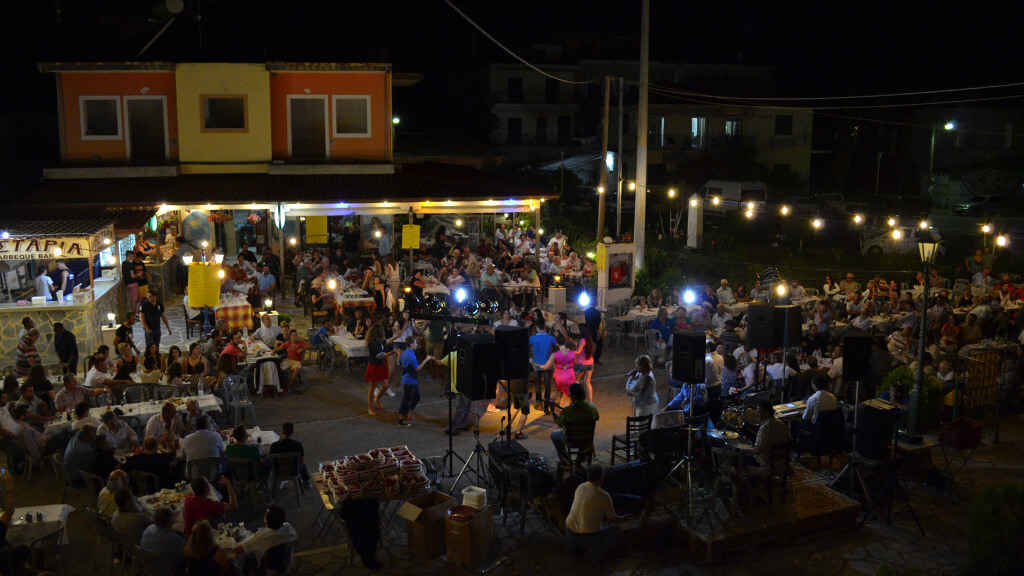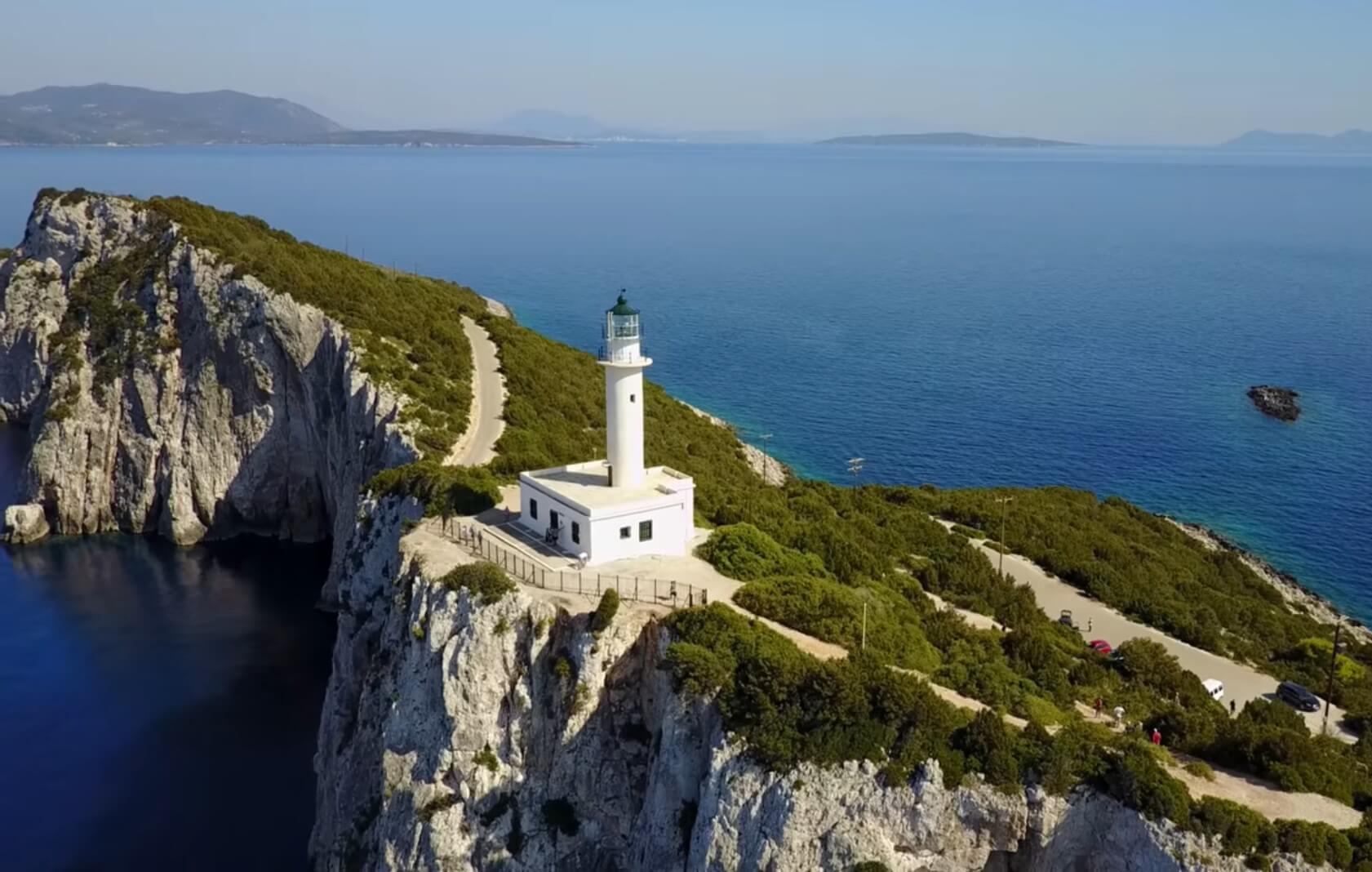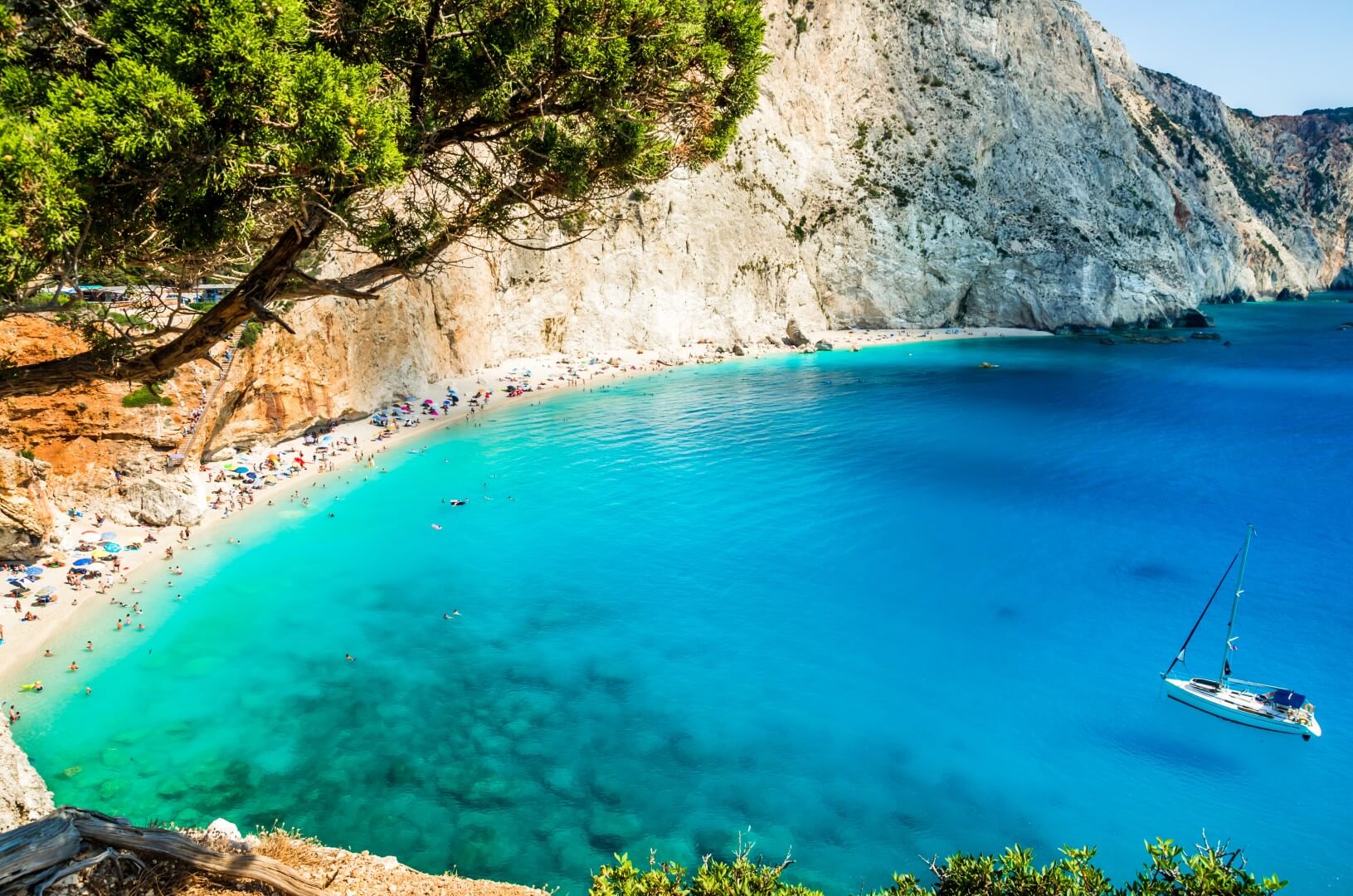In addition to Greek National holidays each island has its own particular festivals and holidays. Lefkas seems to have more than its own fair share and if you are fortunate enough to be here for a festival day, it's really worth making the effort to go and watch – or maybe join in the fun.
It must be remembered that a Greek Festival day is usually a religious celebration and often relates to a particular saint. It may be the only day in the year that the church holds a service. On festival days the church bells start ringing early in the morning and the islanders go to offer their thanks and prayers. It is usually in the evening that the party proper begins!
27th May – Agion Pateron, Nikiana: this religious festival is celebrated at the tiny convent just behind the village of Nikiana. During the day many people walk all the way up the steep and windy hill from Nikiana to honour the saints and gain their goodwill. In the evening there are the usual festivities with loud clarinet music and traditional dancing in the village. This begins around 10 p.m. and goes on in to the early hour of the morning
24th June – Agios Ioannis, Meganissi: a day celebrated throughout Greece commemorating the birth of Saint John the Baptist. Usually the major festivities take place on the eve of the festival. In this area it is celebrated mainly on the island of Meganissi on the beach close to the church of Agios Ioannis. Many people go across by boat during the day to pay their respects at the small chapel but, as usual, the major celebrations take place in the evening with the traditional clarinet music and dancing.
7th July – Agia Kiriaki, Nidri and Vlicho: This is the most significant festival in the Nidri area. The church of Agia Kiriaki, the patron saint of Vlicho, is located opposite Nidri. During the festival period, which lasts three days, a market is set up along the seafront in Nidri. Small boats run a regular ferry service from Nidri harbour across to the church on this day. The evening festivities take place in the village of Vlicho. Tables, chairs and makeshift bandstands are set up all along the seafront. Hundreds of people come from all over the island to join in the evening festivities, which usually begin around 11pm and go through the night till the early hours of the morning. It’s great fun to watch or even join in but be warned, the clarinet music is played at extremely high decibel level!
17th July – Agia Marina, Agia Marina near Lefkas Town: mainly celebrated in rural areas with feasts to honour the saint as the protector of crops. The church of Agia Marina is just behind the beach of Agios Giannis near Lefkas Town
26th July – Agia Paraskevi, Agios Petros: Agia Paraskevi is the Patron Saint of the small village north of Vassiliki, Agios Petros. A special service is held at the church in the morning but the true merriment begins in the evening. Usually around about 11pm everybody congregates around the village square where tables and chairs are set out and there is live music for entertainment. As with most Greek festivals the party goes on until the early hours of the morning!
6th August – Agios Donatos Lentil Festival, Englouvi: this festival is probably one of the most peculiar festivals in the Ionian Islands and great fun too! Around 6pm of the 6th August a special service is held to honour the Archbishop Donatos in the tiny church that takes his name, located on the plain above the village of Englouvi. After the service everybody gets together in the area outside the church where the locals from Englouvi offer free wine, sardines and bowls of lentil soup (a speciality of Englouvi). After this, the party continues with music and dancing.
15th August – Festival of the Assumption of the Virgin Mary. This is a big national holiday. Any church on the island dedicated to the Virgin Mary organises a festival and Greek music can be heard coming from everywhere!
1st Sunday in August, Karia: a reconstruction of a traditional Lefkadian wedding takes place in the evening of this day. This is a relatively recent event set up with live music and lots of traditional Greek dancing by the locals in order to preserve old customs and traditions. The village gets quite packed but a visit is definitely worth it.



